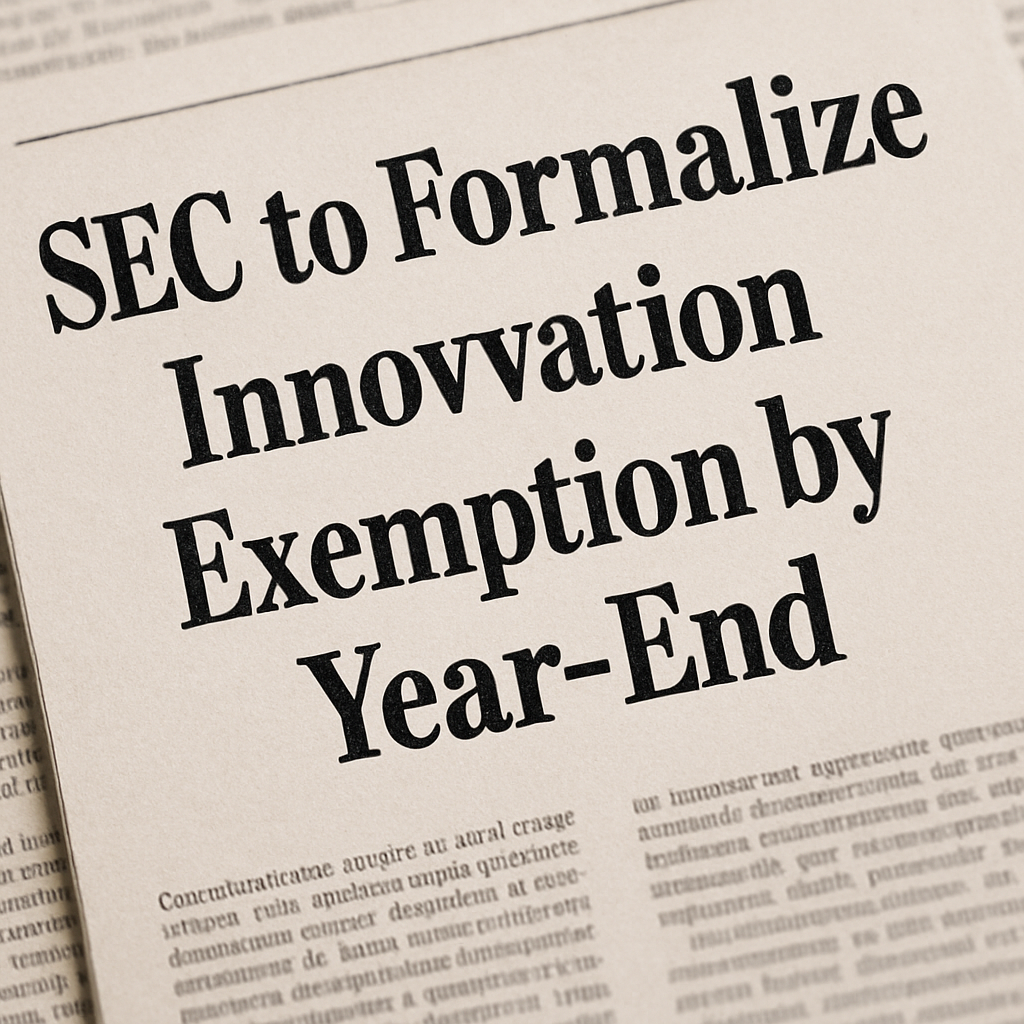The U.S. Securities and Exchange Commission (SEC) has announced a plan to formalize its proposed"innovation exemption" by the end of 2025 or in early 2026, marking a potential shift toward a rules-based framework for digital asset activity. The announcement was made by SEC Chair Paul Atkins during a panel discussion at the Futures and Derivatives Law Report event hosted by Katten Muchin Rosenman LLP in Midtown Manhattan on October 7, 2025.
Chair Atkins emphasized that the innovation exemption is intended to provide a clear, transparent pathway for developers and entrepreneurs to build and operate digital asset products within the United States. The exemption could allow qualified entities to engage in digital asset transactions without risk of enforcement actions, provided they meet specified criteria detailed in the forthcoming rulemaking proposal.
Atkins acknowledged that the ongoing U.S. government shutdown has hamstrung certain SEC operations, particularly rulemaking activities. However, he stressed that drafting and issuing the innovation exemption proposal remains one of the agency's top priorities."Despite the shutdown impacts, the SEC intends to move forward with formal rulemaking," Atkins stated."Innovation in financial technology cannot wait indefinitely, and the SEC must provide a regulatory environment that balances consumer protection with technological advancement."
The innovation exemption was first proposed in August 2025 in a staff concept release, which outlined potential criteria for eligible entities, including capital requirements, disclosures, and periodic reporting obligations. Initial feedback solicited from industry participants emphasized the need for clear definitions, standardized disclosure formats, and robust investor safeguards.
Industry stakeholders have welcomed the anticipated formal rulemaking. Proponents argue that codifying the exemption would reduce regulatory uncertainty and support domestic development of blockchain and digital asset services. Critics, however, caution that overly broad exemptions could expose retail investors to undue risk. Some observers have urged the SEC to include tiered eligibility requirements, ensuring only well-capitalized, compliant entities can rely on the exemption.
Atkins also previewed additional initiatives under consideration, including enhanced frameworks for stablecoin regulation and clearer guidelines for decentralized finance (DeFi) protocols. He noted that these projects will be sequenced based on resource availability and congressional direction."The SEC's mission is to protect investors while fostering market integrity and innovation," Atkins said."A well-structured exemptions regime is essential to achieving these goals in the digital asset space."
The formal rulemaking process is expected to begin with an advance notice of proposed rulemaking (ANPR), followed by a public comment period. Once comments are reviewed, the SEC will issue a proposed rule. Upon finalizing the rule, the innovation exemption will become part of the SEC’s regulations, providing a clear legal path for eligible market participants.

Comments (0)